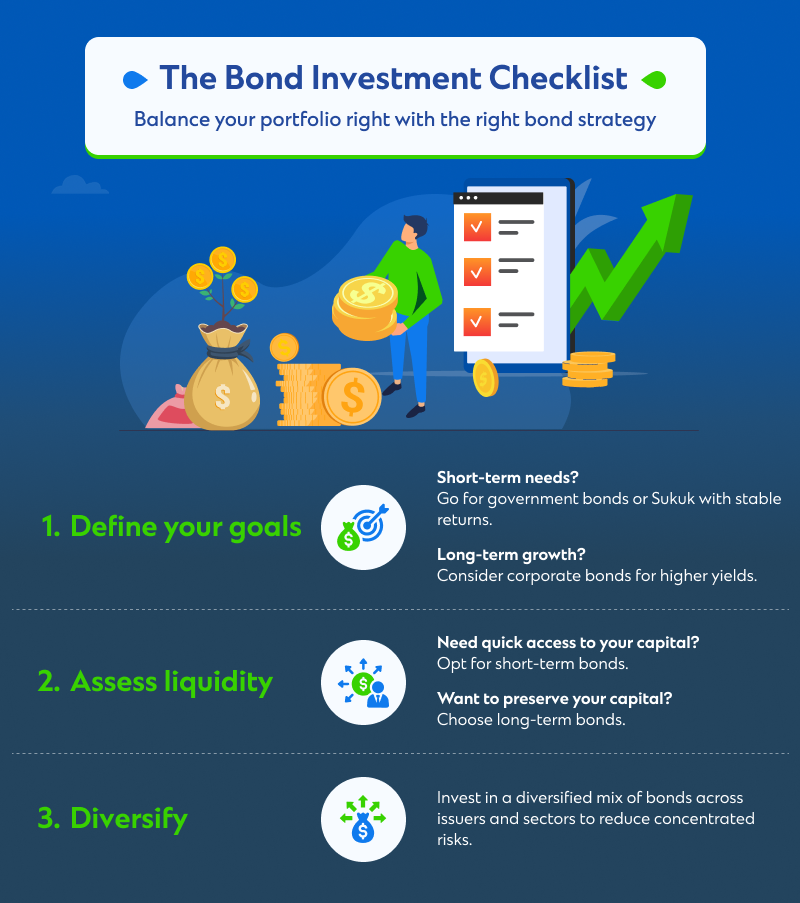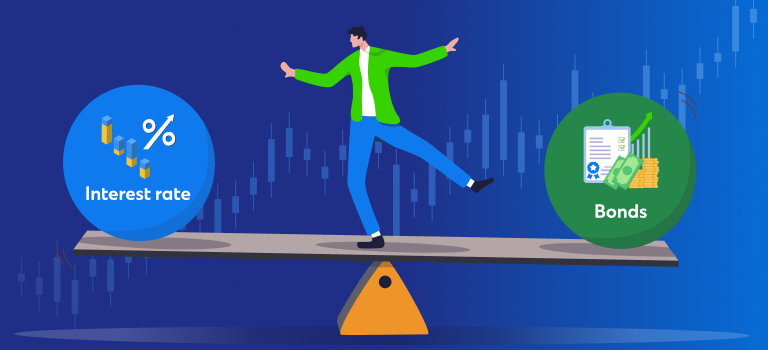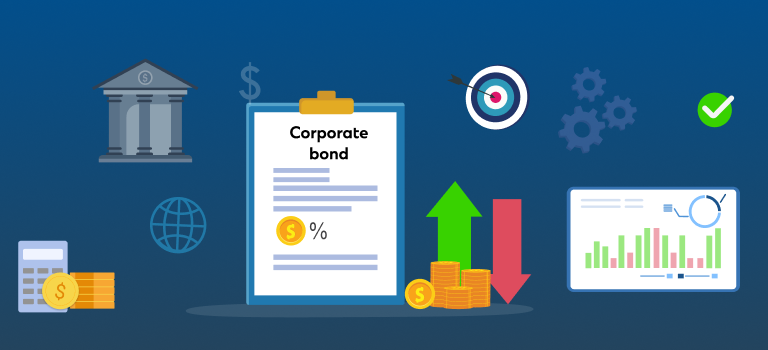

Table of Contents
In a rush? Read this summary:
- UAE bond market hits $309B, projected to reach $350B by 2026 amid infrastructure growth and liquidity reforms.
- Bonds offer steady income and stability, with sovereign and corporate options, as well as sukuk and green bonds.
- High liquidity and strong credit ratings make UAE bonds a go-to for diversification and long-term wealth planning.
The UAE’s debt capital market was valued at USD 309 billion in Q1 2025. Projections suggest that this valuation could go up to USD 350 billion by 2026, driven by an increase in demand for capital on the back of large-scale infrastructure development as well as the Central Bank of the UAE’s Dirham Monetary Framework, which provides for greater liquidity in the market.
Bond investments in the UAE can help investors looking to build a resilient portfolio that balances stable income with capital appreciation. If you’re new to bonds, read on to learn how they help make your portfolio future ready.
The basics of bond investments
Bonds are loans made by an investor to the issuer, which can either be government or private entities. The money is lent for specified periods (the “term”) at agreed-upon interest rates (the “coupon”). Investors are paid this interest at regular intervals, and the principal is paid back when the bond matures.
A key measure of bond performance is its yield—the returns one earns on their investment, relative to its coupon rates and market price. Yields are influenced by prevailing interest rates in a country. When interest rates fall, older bonds with higher coupon rates become more attractive, driving up their value. Since the coupon remains fixed though, the higher price results in a lower yield for new investors.
New bonds with better coupon rates become attractive when interest rates rise, causing the value of existing bonds with lower interest rates to fall. However, increased yields due to lower purchasing costs make them more appealing.
The benefits of investing in bonds
Whether you’re a novice or a seasoned investor, here are some reasons why bonds have universal appeal.
Predictable income streams
Fixed payments at regular intervals make bonds suited to those who prioritise regular income streams over capital appreciation. They also help one better tackle unforeseen expenses such as accidents, illnesses, or home repairs.
Capital preservation
Sovereign bonds issued by the UAE government are considered some of the safest investment instruments, owing to the country’s strong credit rating and robust economy. Standard & Poor’s (S&P), Moody’s, and Fitch, three of the world’s biggest credit rating agencies, gave the UAE an AA, AA2, and AA- rating , respectively. These ratings are the third highest on the first two’s scales, and the fourth highest in Fitch’s case, and make the country seen as providing for stable returns on investments and being subject to low credit risk.
Portfolio diversification and risk mitigation
Bonds and equities behave fundamentally differently during market rallies and downturns. Equities are typically more volatile, influenced by both companies’ and the market’s performance. Bonds offer stable interest payments over time.
Bond prices also rise during economic downturns, as investors turn to safer assets with consistent returns. This makes bonds a valuable instrument of diversification.
Liquidity
The UAE’s bond market offers high liquidity levels, owing to high demand. When the Ministry of Finance recently auctioned UAE Dirham-denominated Islamic Treasury Sukuk amounting to AED 1.1 billion, bids reached AED 6.21 billion, an oversubscription rate of nearly 5.6 times.
Types of bonds to consider investing in
Bonds are vital for income generation, capital preservation, and diversification. The UAE’s bond market has rapidly grown in recent years, offering a variety of instruments that cater to diverse financial goals and risk appetites.
Government bonds
These are issued by the federal government of the UAE and/or individual emirates. They are generally suited to conservative investors with a low risk appetite, who prioritise capital preservation over appreciation. This is because it is unlikely that the sovereign government will default on its payments.
Corporate bonds
Corporate bonds allow one to invest in several different sectors, to capitalise on emerging opportunities. Owing to their higher returns, they’re more suited to investors who prioritise stable income and capital appreciation in the long run. Risk levels are also higher, however, since the risk of a company defaulting on debt may be higher than that of the government. stable income and capital appreciation in the long run. Risk levels are also higher, however, since the risk of a company defaulting on debt may be higher than that of the government.
Sukuk (also known as Islamic bonds)
Sukuk are Shariah-compliant debt instruments. They represent a part of ownership in tangible assets such as real estate or gold. Investors receive a share in the returns generated by these assets, as compared to fixed interest (riba), which is prohibited in Islam.
Green bonds
Green bonds are used to finance projects with a positive environmental impact. Their functioning is similar to conventional bonds. Their issuers typically provide investors with detailed reports on how the proceeds are used and the impact of the same. According to an S&P report, issuances for these bonds in the Middle East stood at $16.7 billion up until September 2024, and accounted for up to 20% of the total bond issuances in the region in the same period.
Fundamentals for bond investments

Bond investments aren’t just about chasing returns. Choosing the right ones tailored to your investment horizon, financial goals, and risk appetite is just as important.
Define your financial objectives
Depending on whether you’re looking to fulfill long- or short-term financial goals, you can choose bonds that offer capital appreciation (corporate bonds) or bonds that offer stable, albeit lower returns (government bonds and sukuk).
Consider your liquidity needs
Invest in bonds based on your liquidity needs. Short-term bonds offer the flexibility to tackle any unforeseen expenses, whereas long-term bonds enable you to benefit from higher yields and capital appreciation in the long run.
Diversify your bonds portfolio
Spread your investments in bonds from different issuers, across sectors and structures (conventional and Islamic), to ensure your portfolio isn’t exposed to any concentrated risks.
Work with a trusted partner
Most importantly, choose a platform that offers you access to quality investment products. In a dynamic market such as the UAE, understanding how bonds work is of the essence. They play a crucial role in ensuring portfolio stability, a stable income, and reducing concentrated risk exposure. Investing in bonds across sectors and geographies also empowers you to build a well-rounded and resilient portfolio that aligns with your financial goals and risk appetite.
Speak to a Standard Chartered Relationship Manager or contact us to explore more about investment opportunities in the UAE bond market.



